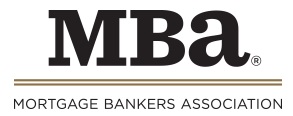WASHINGTON, D.C. – March 21, 2012 – (RealEstateRama) — Mortgage applications decreased 7.4 percent from one week earlier, according to data from the Mortgage Bankers Association’s (MBA) Weekly Mortgage Applications Survey for the week ending March 16, 2012.
The Market Composite Index, a measure of mortgage loan application volume, decreased 7.4 percent on a seasonally adjusted basis from one week earlier. On an unadjusted basis, the Index decreased 7.1 percent compared with the previous week. The Refinance Index decreased 9.3 percent from the previous week. The seasonally adjusted Purchase Index decreased 1.0 percent from one week earlier. The unadjusted Purchase Index decreased 0.6 percent compared with the previous week and was 1.9 percent lower than the same week one year ago.
The four week moving average for the seasonally adjusted Market Index is down 2.79 percent. The four week moving average is up 3.25 percent for the seasonally adjusted Purchase Index, while this average is down 4.31 percent for the Refinance Index.
The refinance share of mortgage activity decreased to 73.4 percent of total applications, the lowest since July 2011, from 75.1 percent the previous week. The adjustable-rate mortgage (ARM) share of activity decreased to 5.6 percent from 5.8 percent of total applications from the previous week.
“With the rate increase last week, refinances are obviously slowing, and the refinance share at 73% is down to its lowest level since last July. With rate/term refinances falling as we go forward, HARP will be a bigger percentage of refinances but will be more concentrated in certain states,” said Jay Brinkmann, MBA’s Senior Vice President of Research and Education. Brinkmann continued, “Some of the largest institutions are reporting that the HARP share of their refinances remained at about 30% last week, but HARP volume is not equal across the country. The states that I started referring to years ago as the sand states that had the worst delinquencies we now should start calling the HARP states for mortgage refinances. We saw big state-level differences in refinance applications for February over January: Florida was up 49%, Arizona was up 61%, and Nevada was up 71%. Refinances in the rest of the country were generally flat or even down. For example, Texas had no change, Colorado was down 3%, Connecticut was up only 2%, and Virginia was up 1%. HARP clearly is a driving force in those states that saw the most defaults and the biggest drops in home equity.”
The average loan size of all loans for home purchase in the US was $225,463 in February 2012, up from $216,888 in January. The average loan size for a refinance was $222,048, down from $227,563 in January. The largest purchase loans were made in the Pacific region at $ 324,606. The largest refinance loans were also made in the Pacific region at $ 305,949.
The average contract interest rate for 30-year fixed-rate mortgages with conforming loan balances ($417,500 or less) increased to 4.19 percent from 4.06 percent, with points increasing to 0.47 from 0.43 (including the origination fee) for 80 percent loan-to-value ratio (LTV) loans. The effective rate increased from last week.
The average contract interest rate for 30-year fixed-rate mortgages with jumbo loan balances (greater than $417,500) increased to 4.49 percent from 4.39 percent, with points decreasing to 0.38 from 0.39 (including the origination fee) for 80 percent LTV loans. The effective rate increased from last week.
The average contract interest rate for 30-year fixed-rate mortgages backed by the FHA increased to 3.93 percent from 3.82 percent, with points decreasing to 0.48 from 0.55 (including the origination fee) for 80 percent LTV loans. The effective rate increased from last week.
The average contract interest rate for 15-year fixed-rate mortgages increased to 3.47 percent from 3.36 percent, with points increasing to 0.40 from 0.34 (including the origination fee) for 80 percent LTV loans. The effective rate increased from last week.
The average contract interest rate for 5/1 ARMs increased to 2.90 percent from 2.81 percent, with points increasing to 0.44 from 0.37 (including the origination fee) for 80 percent LTV loans. The effective rate increased from last week.
If you would like to purchase a subscription of MBA’s Weekly Applications Survey, please visit www.mortgagebankers.org/WeeklyApps, contact "> or click here.
The survey covers over 75 percent of all U.S. retail residential mortgage applications, and has been conducted weekly since 1990. Respondents include mortgage bankers, commercial banks and thrifts. Base period and value for all indexes is March 16, 1990=100.
###
The Mortgage Bankers Association (MBA) is the national association representing the real estate finance industry, an industry that employs more than 280,000 people in virtually every community in the country. Headquartered in Washington, D.C., the association works to ensure the continued strength of the nation’s residential and commercial real estate markets; to expand homeownership and extend access to affordable housing to all Americans. MBA promotes fair and ethical lending practices and fosters professional excellence among real estate finance employees through a wide range of educational programs and a variety of publications. Its membership of over 2,200 companies includes all elements of real estate finance: mortgage companies, mortgage brokers, commercial banks, thrifts, Wall Street conduits, life insurance companies and others in the mortgage lending field. For additional information, visit MBA’s Web site: www.mortgagebankers.org.














